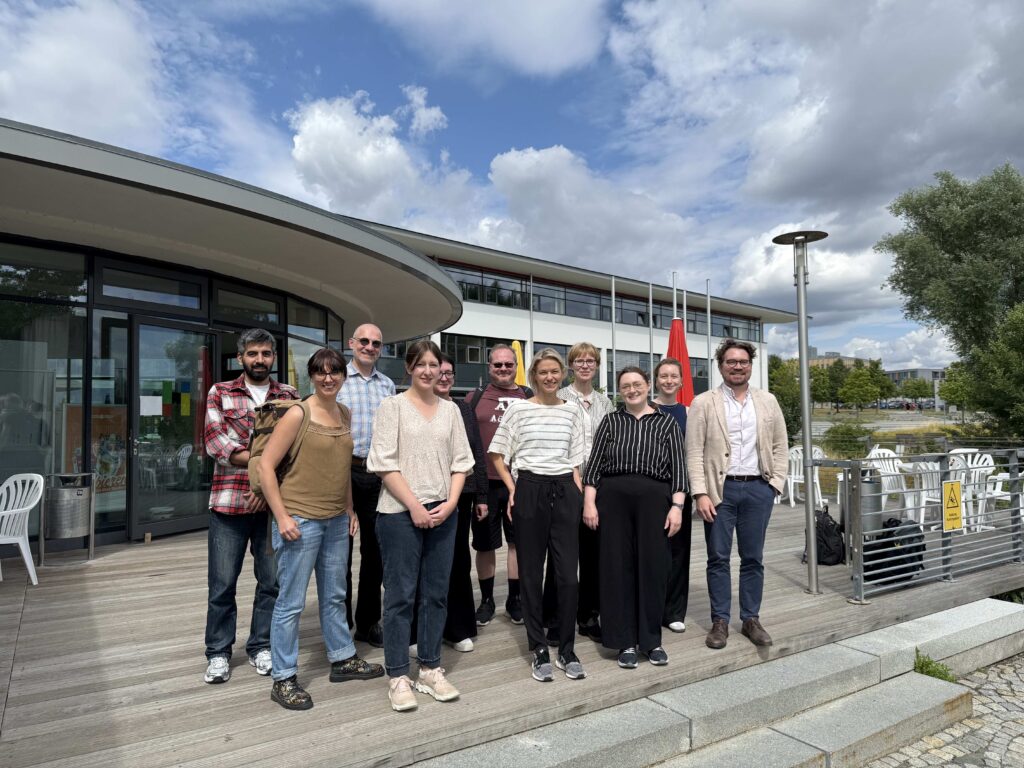Project StoryMachine officially started in February 2025. We’ve been very busy over the past few months, including holding a number of online meetings, both of the whole team and for individual work packages. On 17-18 July, though, we had our first opportunity for (almost!) the whole team to meet in person. Eleven
of us got together at the Institute for Information Systems in Hof University of Applied Sciences, arriving by various combinations of plane, train, car and bus from across Germany and the UK.
Discussions on the first day started with consideration of some of the more practical project management aspects of StoryMachine, including refining goals and objectives and checking on progress against our workplan. Next, Lisa Eidloth gave a hands-on demo of the current StoryMachine user interface, which allows users to work with a folklore knowledge base to co-create new stories and narrative pathways. Saeid Khoobdel then presented the knowledge base itself in more detail, pitching things perfectly for our mixed-discipline team. The final business of the day was a detailed presentation from Marie Veihelmann of potential project use cases, identifying communities such as teachers, cultural heritage professionals, creative practitioners and literary researchers. There was lots to discuss over dinner in a local pizzeria!

Day two started with agreement on the wonderful project logo designed by Marie. This will be a huge help in giving the project a coherent identity across social media (watch this space!). We then reflected on a major piece of work that has been undertaken during the first months of the project – an interdisciplinary literature review. We’re hopeful that this initial research will lead to the publication of at least one peer-reviewed article. Astrid Ensselin and Sabine Slowik next presented fascinating scoping work on digital folkloristics, including online folklore projects, folklore that has emerged in digital spaces and ludofolklore (including the folkloric turn in game studies). After lunch, Peter Nuernberg went old school, introducing some classification alternatives to taxonomies using a whiteboard and markers. It was a nice change to the rhythm of the day. We ended the meeting by discussing possible collaborations with other groups and projects concerned with digital folklore and finalising a list of actions and responsibilities.
We got through a lot of work in two short days, and agreed ways forward in key areas, but more importantly we got to know each other better. We’re already planning our next face-to-face meeting in the UK!